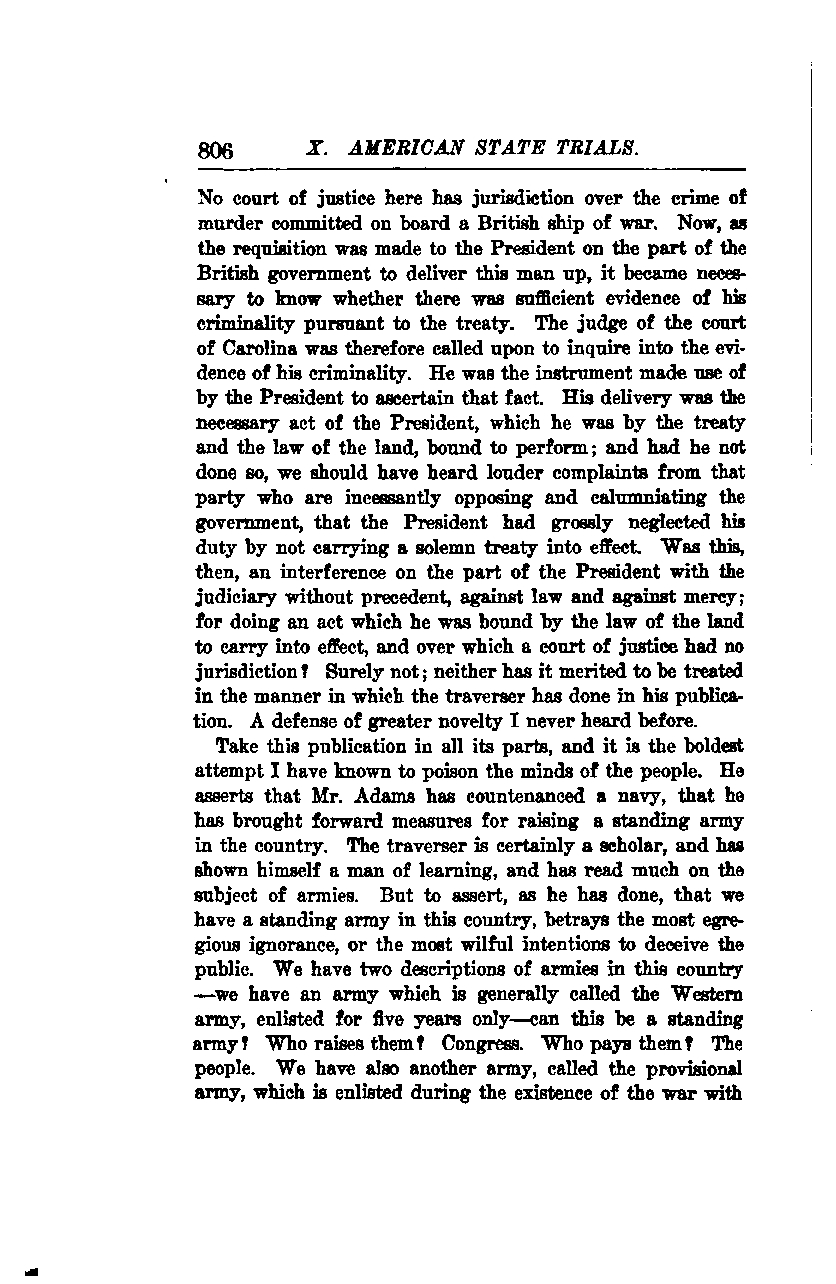
Here is the translated text as follows:
No court of justice here has jurisdiction over the crime of murder committed on board a British ship of war. When the British government requested the President to deliver this man up, it became necessary to determine whether there was sufficient evidence of his criminality pursuant to the treaty. Consequently, the judge of the court of Carolina was called upon to inquire into the evidence of his criminality. He acted as the instrument used by the President to ascertain that fact.
The delivery of the accused was a necessary act of the President, which he was bound to perform by the treaty and the law of the land. Had he failed to do so, we would have heard louder complaints from those incessantly opposing and calumniating the government, accusing the President of grossly neglecting his duty by not executing a solemn treaty. Was this, then, an unprecedented interference by the President with the judiciary, against law and mercy, for performing an act he was legally obligated to carry out, and over which a court of justice had no jurisdiction? Surely not. Nor does it deserve the treatment it received in the traverser's publication.
The defense presented is of greater novelty than I have ever heard before. The publication, in all its parts, represents the boldest attempt I have known to poison the minds of the people. The traverser asserts that Mr. Adams has supported a navy and has introduced measures for raising a standing army in the country. The traverser is certainly a scholar, a learned man who has read extensively on the subject of armies. However, to claim that we have a standing army in this country betrays either egregious ignorance or a willful intention to deceive the public.
In this country, we have two types of armies. We have an army generally referred to as the Western army, enlisted for only five years. Can this be considered a standing army? Who raises them? Congress. Who pays them? The people. We also have another army, called the provisional army, which is enlisted during the existence of the war with [text incomplete].
---